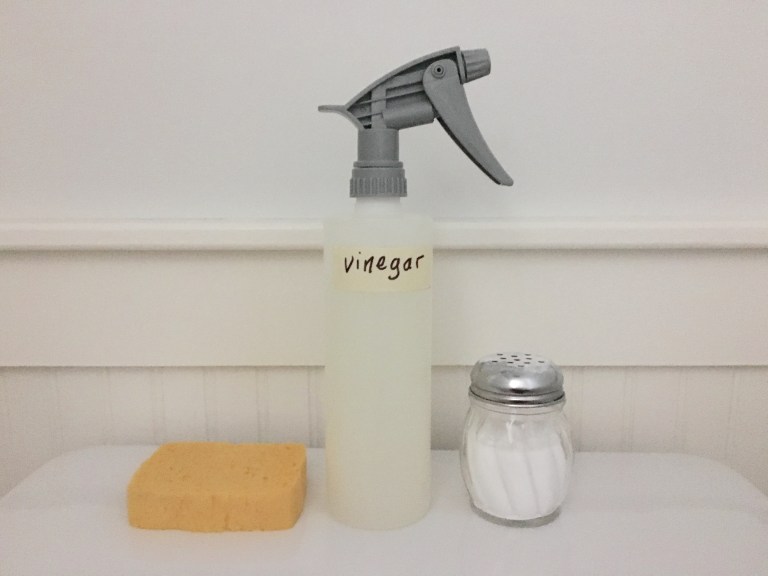Making the Shift to Zero Waste Living
by Julie Fathy | February 23, 2017

I didn’t anticipate my life would be simplified. A zero waste lifestyle looked hard to implement and complicated to follow. But by taking small steps, I'm making it a reality.
I first learned about the concept in 2011 when I read about Béa Johnson and her family’s zero waste home. I was enamored with their simple and spare home and was blown away by their ability to produce virtually no trash. I was already taking steps toward simple and sustainable living, but Béa inspired me to make further adaptations to create less waste.
My family is best described as having a low-waste home with continual progress toward zero waste. It hasn’t been a fast or always easy transition, but I’ve noticed with each change that my life is simplified. I spend less time shopping, my home is less cluttered and easier to clean, and I don’t have to work as hard to pay the bills. Thus, I’m healthier, happier, less stressed, and the planet is better off for it.
"Zero waste living is often focused on limiting the trash we haul to the curb each week, but attention should also be given to limiting our overall consumption of goods."
What Does It Mean to Be "Zero Waste"?
Zero waste living is often focused on limiting the trash we haul to the curb each week, but attention should also be given to limiting our overall consumption of goods. Béa Johnson coined 5 R’s to going zero waste: “Refuse what you do not need, Reduce what you do need, Reuse what you consume, Recycle what you cannot Refuse, Reduce or Reuse, and Rot (Compost) the rest.”
For me, “refuse” means opting out of consumerism as a first choice. Before making a purchase, I ask these questions:
- Can I live without it?
- Can I borrow it?
- Do I already own something that can serve the same purpose?
- Can I find it secondhand?
- Will it last me for life and do I like it enough to keep for life?
- If purchased new, is it ethically/sustainably made?
- Does it replace a single-use item?
- Is it plastic-free and made of natural materials (so that it can “rot” at the end of it’s life)?
- Does it come package-free and if not, is the packaging plastic-free and recyclable?
In addition to buying less, I’ve taken the following steps to reduce my waste:
My Kitchen
- Shop the bulk aisle, filling my own containers
- Buy loose produce with no packaging
- Bring my own cloth bags
- Avoid packaged food and cook from scratch
- Buy milk, cream, eggs, and honey from a local farmer that comes in returnable/reusable glass Mason jars and cartons
- Make zero waste coffee at home
- Pack my own lunch to take to work
- Use cloth napkins and towels in place of paper products
- Avoid food waste
- Compost
My Bathroom
- Use package-free soap
- Make my own all-purpose balm in place of packaged creams and lotions
- Make my own beauty products
- Use recycled toilet paper with plastic-free packaging
- Use a safety razor
- Use a shampoo bar and apple cider vinegar rinse
- Use a menstrual cup
- Use a bamboo toothbrush and homemade tooth powder
- Use package-free crystal salt deodorant
My Wardrobe
- Purchase mostly secondhand clothes
- Choose natural fiber clothes, rather than synthetic
- Keep a minimal wardrobe
- Take care of clothes and mend to prolong life
My Kids
- Use cotton diapers and wipes
- Provide kids with secondhand, handmade, or natural toys
- Give less at birthdays and Christmas
- Dress in secondhand clothes
Cleaning
- Make my own cleaning spray and scrub
- Use cloth rags and natural scrubby sponges
Overall Philosophy
- Live with less
- Purchase for life
- Buy secondhand
- Eliminate single-use items
- Look for natural materials that biodegrade
- Care for and repair my belongings
- Practice voluntary simplicity
For everyone who doubts their ability to live a zero waste lifestyle, my recommendation is to take it one change at a time. I do it for the earth, but I too reap the benefits. Lauren Singer from Trash is for Tossers, said it so well in her TED Talk, “I live a zero waste lifestyle because, to me it’s the best way I know how to live a life that aligns with everything I believe in.”
Julie Fathy lives in Denver, Colorado, with her husband and three children. She writes about simple and sustainable living at The Beauty in Simple.

